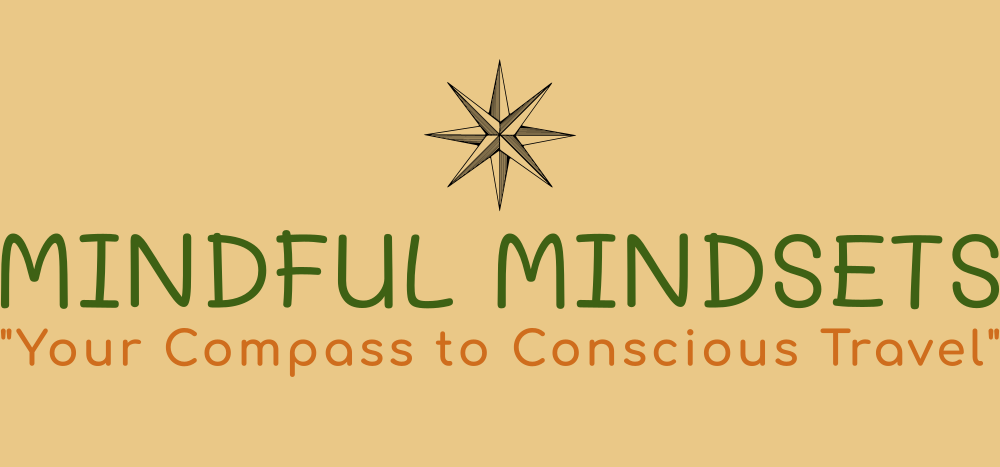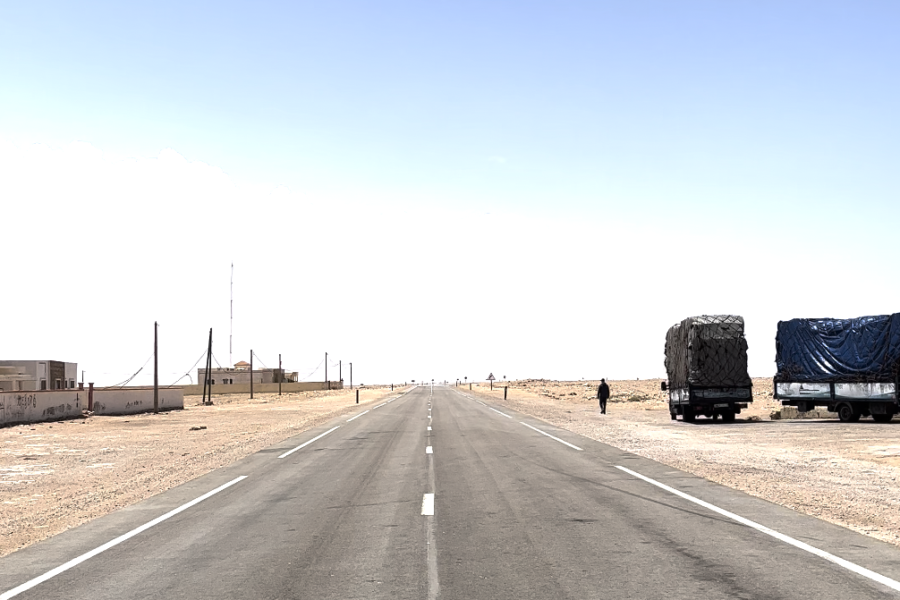Okay, so on a necessary bus journey into Mauritania, I found myself utterly entranced by the views of the Western Sahara. The desert stretched far beyond what my eyes could behold, an endless ocean of sand and rock, punctuated by the occasional flurry of life. This 21-hour marathon bus ride from Agadir to Dahkla – had me traveling through the heart of this vast, sweeping expanse, an experience which had slowly yet surely become a strangely comforting constant in my life. A remarkable deviation from the standard, often detached way of air travel, these extended bus rides have a way of grounding me into the heart and soul of the lands I traverse, and are invariably easier on my travel budget.
From my vantage point at the front of the bus, engaged in a conversation with the bus driver, I was able to contemplate our journey in profound detail. Long-haul travels, in their unique way, morph into a form of forced meditation for me. With hours stretching into infinity, I found ample time to dissect my surroundings, absorbing every nuance of my journey in Africa so far as well as just life in general. These extensive periods of introspection also allowed me to reflect upon my past experiences and the lessons they brought, a process I hold crucial for personal growth and the evolution of one’s life perspective.
As we navigated the disputed territory of the Western Sahara, a region characterized by its endless dunes and sparse habitation, a peculiar phenomenon demanded our attention. The bus driver pointed towards a mirage shimmering in the midday sun. A fascinating spectacle I had never before had the privilege of witnessing up close, this optical illusion bore an uncanny resemblance to a large body of water, its visual deception convincing even at a significant distance.
This peculiar illusion ignited a surge of introspection within me. It had me contemplating: What other mirages, not necessarily physical but metaphorical, do we encounter in life? How often do we fall prey to perceptions that, while seemingly grounded in reality, are mere distortions of the actual truth? The act of reflection, therefore, seemed not only integral to my travels but also in every facet of life, underscoring its importance.
Judgment, I realized, is akin to a mirage, often a distortion of reality that we steadfastly believe to be real. It’s a construct born out of our interpretations of others’ thoughts and feelings towards us. This form of self-perception, unfortunately, has taken a predominant role in our society. Many of us are driven by an overwhelming desire to fit into a mold dictated by others’ perceptions, effectively seeing mirages of judgment where there are none.
This unfortunate illusion holds a profound impact on us. It stifles dreams, encourages self-deprecation, and demands sacrifices that slowly chip away at our authenticity. Individuals often find themselves altering their paths, not due to personal desire or necessity, but in response to what they perceive others think of them. To be brutally honest, the truth is that most people are too engrossed in their own narratives to cast such judgments. When they do, it is often driven by envy or a genuine concern for our well-being, rather than disdain or derision.
I am firm in my belief that an average person is mostly indifferent to our individual choices and actions. As long as we persist in leading lives that align with our values, take pride in our achievements, share generously, and strive ceaselessly, we are living authentic lives that reflect our true selves. And no one, not even ourselves, has the authority or the reason to cast judgment.
In essence, the mirage of judgment, like all other mirages, must be recognized for what it truly is – an illusion. If we can help more individuals understand this, we might be able to liberate ourselves from the stifling fear of judgment, embarking on a journey of self-discovery and acceptance that allows us to live our lives true to ourselves. This would enable us to stop wasting energy chasing or fleeing from the illusory perceptions that we believe others hold of us.
In a larger context, this analogy of the mirage extends beyond judgment, enveloping other aspects of our lives where our perceptions may deceive us. It can pertain to the unreachable ideals that society imposes upon us – the perfect body, the perfect job, the perfect family. These ‘mirages’ compel us to strive for an illusion of perfection that is not only unattainable but also bereft of any substantial essence.
Furthermore, the mirage can represent the illusions we sometimes hold about ourselves, our capabilities, and our limits. How often do we trick ourselves into believing that we are not capable of accomplishing certain tasks, reaching certain heights, or that we are constrained by invisible and self-imposed boundaries? These personal ‘mirages’ distort our self-image, causing us to underestimate our abilities and potential.
Just as the desert mirage vanishes when we approach it, these illusions disintegrate upon closer inspection and introspection. When we examine our lives from a place of honesty and authenticity, we start to see through these illusions. We begin to understand that these ‘perfect’ ideals are not only unattainable but also unnecessary, that we are not as limited as we sometimes perceive ourselves to be, and that the judgments we fear are often not grounded in reality.
The Western Sahara has much to teach us, not just about the world but also about ourselves. Its mirages are metaphors, inviting us to reflect on the illusions that pervade our lives and challenge them. It is a reminder that we are not defined by other people’s perceptions of us, nor by societal expectations, nor by our own self-deceptive illusions.
Thus, as we journey through life, let’s strive to recognize our own mirages, the false beliefs and perceptions that limit us. Let us approach them, investigate them, and see them for what they truly are. In doing so, we can dispel these illusions and live more authentically, realizing that, like the mirage in the desert, they are transient and do not hold any real power over us.
In the end, it is this understanding that frees us, just as recognizing the mirage in the Western Sahara freed me from the illusion of water in the desert. Through this journey of self-awareness and understanding, we can strive towards leading a life that is not governed by illusions but one that is true, authentic, and real.









